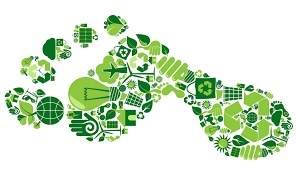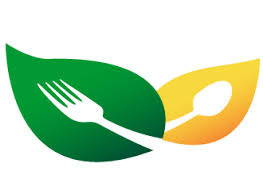
1. Environmental Benefits
a) Minimizing Carbon Output
According to Project Drawdown, a plant-rich diet can reduce emission by about 60-70%.
If about 50% of the world's population were to restrict their diet to 2,500 calories per day and reduce meat consumption, about 26.7 gigatons of emission could be avoided (Project Drawdown, 2017)
b) Minimizing Animal Agriculture
National Geographic states that agriculture is nine percent of emissions and livestock roughly four percent of that.
It requires much less land, about 20 times less (Peta, 2010) to feed someone on a plant-rich diet than it does of a meat-eater, and so a plant-rich diet would minimize the amount of land required to be used for livestock grazing.
About 39.3 gigatons of emissions could be avoided due to a decrease in deforestation and land-use change associated with animal agriculture (Project Drawdown, 2017).

c) Decreasing Water Footprint
According to Chai et al. (2019) livestock farming generates a water shortage, its total water footprint is about 29% of the global agricultural production. Reducing the amount of livestock product consumption will result in a reduction of global water consumption.
Statistically, one kilogram of beef requires ~13kg of grain and ~30kg of hay which amounts to ~104,500 L of water, whereas one kilogram of crop requires between 500-2000L of water (Chai et al., 2019).
So minimizing the number of livestock products consumed will greatly decrease our water footprint.
d) Decreasing Air Pollution/Toxins
According to Peta (2010), many factory farms divert water pollution by spraying liquid manure into the air, creating mists that are carried away from the wind, emitting toxic airborne chemicals.
Minimizing the amount of livestock product consumption minimizes the amount of waste disposal required for farms, leading to fewer air pollutants and toxins.

e) More Sustainable
Plant-rich diets are sustainable compared to those which consume livestock products due to the fact that they require less natural resources, as well as are less taxing on the environment (Sabaté and Soret, 2014). A plant-rich diets impact on the environment is not as significant to that of meat-eaters, which is why it is considered sustainable.
2. Health Benefits

a) Reduced "un-healthy" foods consumption
As stated in Lacour et al. (2018) those with a plant-rich diet, tend to consume less fast food products (hamburgers, pizzas, and sandwiches), sweets and alcohol. As well as that a plant-rich diet leads to a decrease in saturated fats intake, increased fibre intake, a higher vitamin and mineral intake (Lea, Crawford, & Worsley, 2006).
b) Minimize risk of diseases
A plant-rich diet has the ability to assist in decreasing the risk of heart disease, certain cancers, metabolic syndromes, diabetes, and depression; it also has the ability to improve one's physical and mental functions (McManus, 2018).
A plant-rich diet is also capable of slowing and possibly preventing cognitive decline, the consumption of greater amounts of plant-based compounds and antioxidants have been shown to slow the progression of Alzheimer's disease and reverse cognitive deficits (Kubala, 2018).

c) Weight Loss
A plant-rich diet is capable of assisting one in weight loss, the increased fibre consumption and exclusion of processed foods can lead to an increase in weight loss (Kubala, 2018). So switching over to a plant-rich diet, allows for yourself to obtain a healthier diet that leads to a healthier lifestyle.
3. Be a Leader
When it comes to initiatives such as this, it takes some time before it becomes something that the majority of the population takes part in. But these initiatives always starts with just one person, so if you feel like this is something that you can support, and it works with your way of living then go for it, be one of the first few people to start the trend.
If you start something, you as a leader can convince many others to join, and eventually, there will be an abundant amount of members of society participating in the plant-rich diet, resulting in a positive feedback loop, and further advocating for a solution to help minimize and possibly solve our current climate change predicament.
Okay, but even after all that, you're still skeptical...
This all just sounds like you have to become a vegan or vegetarian though
No, you don't. It's similar to that analogy of a square is a rectangle, but a rectangle is NOT a square. A plant-rich diet is the square, and a vegan/vegetarian diet is the rectangle.
But in easier words: a vegan and vegetarian lifestyle is a form of a plant-rich diet. But having a plant-rich diet doesn't mean that you are a vegan or a vegetarian.
Try thinking of the diet in different aspect
Don't think of the diet as a plant-rich diet, or something similar to a vegan and vegetarian diet. Think of it as a SUSTAINABLE DIET.
A Sustainable diet defined by Sabaté and Soret (2014) is a diet with low environmental impacts which contribute to food and nutrition security and to a healthy life for present and future generations; it protects and respects biodiversity and ecosystems, is culturally acceptable, accessible, economically fair and affordable, nutritionally adequate, safe and healthy, while optimizing natural and human resources.
But what about Genetically Modified Organisms (GMO)
Okay, but for health/medical reasons, I can't stop consuming meat and meat products
But if you're still not convinced...
If you've gotten to this point and you're still conflicted, here's a video of some professional people who are saying basically the same things that I have, with a greater scientific understanding and reasoning.
View this video on YouTube
If you are convinced and check out this website to learn a little more detail about the plant-rich diet solution to climate change.
And if you want to figure out more ways to assist in climate solutions, check out Project Drawdown
They are a world-class research organization that reviews, analyses, and identifies the most viable global climate solutions, and shares these findings with the world.
Project Drawdown's mission is to help the world stop global warming by achieving Drawdown, as quickly, safely and equitably as possible.
They have a wide range of solutions, through categories such as electricity generation, food, women and girls, buildings and cities, land use, transport, materials, and coming attractions. All of these categories contain multiple viable solutions that will result in minimizing our environmental impact.
And for all intents and purposes....
References
Gibbens, S. (2019). Eating meat has ‘dire’ consequences for the planet, says report. National Geographic. [Website] Retrieved from https://www.nationalgeographic.com/environment/2019/01/commission-report-great-food-transformation-plant-diet-climate-change/#close
Kubala, J. (2018). Whole-foods, plant-based diet: a detailed beginners' guide. Healthline. [Website] Retrieved from https://www.healthline.com/nutrition/plant-based-diet-guide
Lacour, C., Seconda, L., Allès, B., Hercberg, S. Landevin, B., Pointereau, P.,… Kesse-Guyot, E. (2018). Environmental impacts of plant-based diets: How does organic food consumption contribute to environmental sustainability? Frontiers in Nutrition. Retrieved from https://www.frontiersin.org/articles/10.3389/fnut.2018.00008/full?utm_source=G-BLO&utm_medium=WEXT&utm_campaign=ECO_FNUT_20180215_vegetarian-organic-food
Lea, E.J., Crawford, D., &Worsley, A. (2006). Public views for the benefits and barriers to the consumption of a plant-based diet. European Journal of Clinical Nutrition. 60, 828-837.
McManus, K. D. (2018). What is a plant-based diet and why should you try it? Harvard Health Publishing. [Website] Retrieved from https://www.health.harvard.edu/blog/what-is-a-plant-based-diet-and-why-should-you-try-it-2018092614760
Peta. (2010). Meat and the Environment. [Website] Retrieved from https://www.peta.org/issues/animals-used-for-food/meat-environment/
Project Drawdown. (2017). Plant-rich diet. [Website] Retrieved from https://www.drawdown.org/solutions/food/plant-rich-diet
Sabaté, J., & Soret, S. (2014). Sustainability of plant-based diets: back to the future. The American Journal of Clinical Nutrition, 100(1), 476-482.


